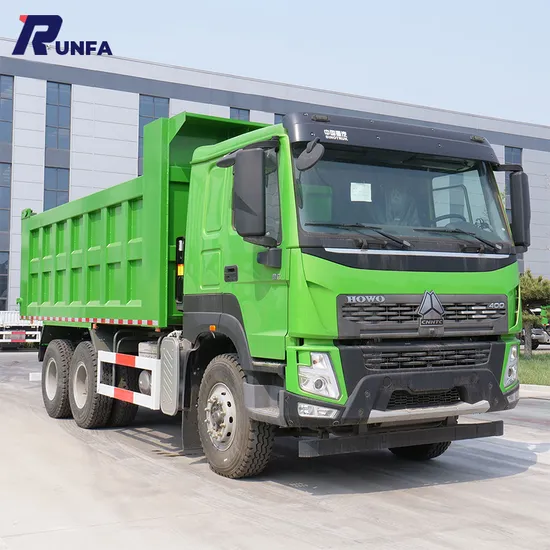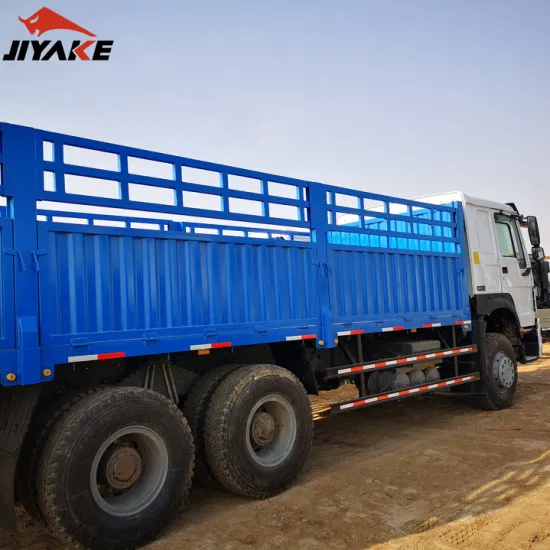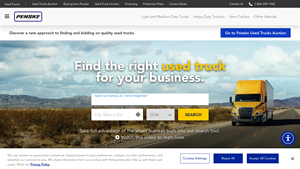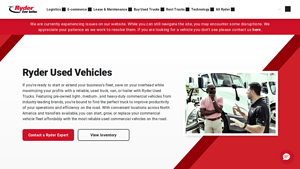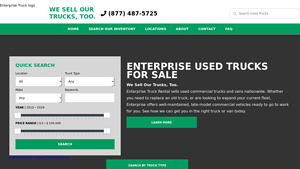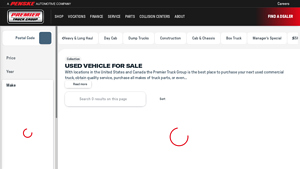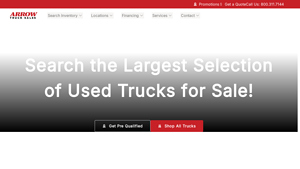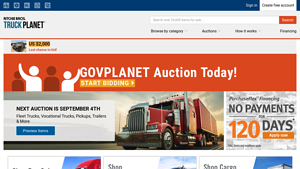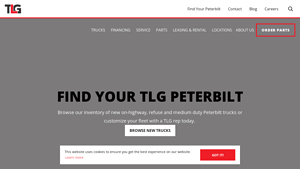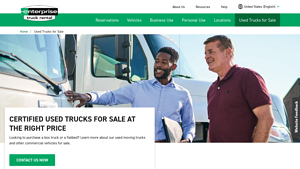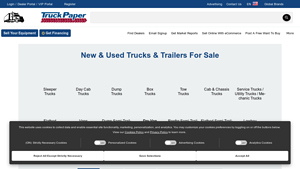Introduction: Navigating the Global Market for used Lorry Truck
In today’s competitive landscape, sourcing high-quality used lorry trucks poses significant challenges for international B2B buyers. From navigating fluctuating market prices to ensuring compliance with varying regional regulations, the process can be overwhelming, especially for businesses in Africa, South America, the Middle East, and Europe. This comprehensive guide is designed to demystify the global market for used lorry trucks, offering insights into various types, applications, and essential factors to consider when making a purchase.
Our guide will explore the diverse range of used lorry trucks available, including light, medium, and heavy-duty options, and their specific applications across different industries. We will also delve into the critical aspects of supplier vetting, ensuring that buyers can confidently select reputable vendors and avoid potential pitfalls. Additionally, we will provide detailed information on cost considerations, financing options, and warranty services that can enhance the value of your investment.
By equipping B2B buyers with the knowledge and resources necessary to make informed purchasing decisions, this guide aims to streamline the sourcing process and maximize operational efficiency. Whether you are expanding your fleet in Nigeria or enhancing logistics capabilities in Saudi Arabia, understanding the intricacies of the used lorry truck market is crucial for driving business success.
Understanding used Lorry Truck Types and Variations
| Type Name | Key Distinguishing Features | Primary B2B Applications | Brief Pros & Cons for Buyers |
|---|---|---|---|
| Flatbed Trucks | Open bed design, versatile loading options | Construction, logistics, agriculture | Pros: Easy loading/unloading; Cons: Less protection from elements. |
| Refrigerated Trucks | Insulated cargo area with temperature control | Food transport, pharmaceuticals | Pros: Maintains product integrity; Cons: Higher maintenance costs. |
| Box Trucks | Enclosed cargo area, often with a roll-up door | Moving, delivery services | Pros: Secures cargo; Cons: Limited loading height. |
| Dump Trucks | Hydraulic lift for unloading materials | Construction, landscaping | Pros: Efficient material transport; Cons: Limited to loose materials. |
| Tanker Trucks | Specialized for liquid transportation | Oil, chemicals, food products | Pros: Safe liquid transport; Cons: Requires specialized training for drivers. |
What Are the Characteristics of Flatbed Trucks and Their Suitability for B2B Buyers?
Flatbed trucks are characterized by their open bed design, allowing for versatile loading and unloading of various goods. This type of truck is particularly suitable for businesses in construction, logistics, and agriculture, where heavy or oversized items need to be transported efficiently. Buyers should consider the ease of loading and unloading as a significant advantage, though they should also be aware that cargo is exposed to weather elements, potentially requiring additional protective measures.
Why Choose Refrigerated Trucks for Your Business Needs?
Refrigerated trucks are equipped with insulated cargo areas and temperature control systems, making them essential for transporting perishable goods such as food and pharmaceuticals. These trucks are ideal for businesses that require strict temperature management to maintain product quality. While they offer significant advantages in preserving goods during transit, buyers must factor in higher maintenance and operational costs, which can impact overall profitability.
What Advantages Do Box Trucks Offer for Delivery Services?
Box trucks feature an enclosed cargo area, often equipped with a roll-up door, making them a popular choice for moving companies and delivery services. Their design secures cargo, providing protection from theft and weather conditions. However, potential buyers should consider the limitations in loading height, which may restrict the types of goods that can be loaded. Overall, box trucks are a solid investment for businesses focused on secure and efficient deliveries.
How Do Dump Trucks Benefit Construction and Landscaping Businesses?
Dump trucks are designed with a hydraulic lift system that allows for easy unloading of loose materials such as gravel, sand, and dirt. This feature makes them invaluable in construction and landscaping projects where material transport and quick unloading are essential. While they excel in moving bulk materials, buyers should note that their utility is limited to loose items, which may restrict their versatility compared to other truck types.
What Should You Know About Tanker Trucks for Liquid Transportation?
Tanker trucks are specifically designed for transporting liquids, making them crucial for industries like oil, chemicals, and food products. They come with safety features to prevent leaks and spills, ensuring compliance with industry regulations. While they offer specialized solutions for liquid transport, buyers should be aware that operating a tanker truck requires trained drivers familiar with handling hazardous materials, which adds to operational complexity.
Key Industrial Applications of used Lorry Truck
| Industry/Sector | Specific Application of used Lorry Truck | Value/Benefit for the Business | Key Sourcing Considerations for this Application |
|---|---|---|---|
| Logistics and Transport | Freight and Cargo Transportation | Cost-effective way to enhance delivery capabilities | Ensure compliance with local regulations and maintenance history |
| Construction | Material and Equipment Hauling | Increases efficiency and reduces downtime on sites | Look for trucks with appropriate payload capacity and durability |
| Agriculture | Bulk Material and Produce Transport | Facilitates timely delivery of goods to market | Consider trucks with specialized features for agricultural needs |
| Food and Beverage | Distribution of Perishable Goods | Ensures product freshness and compliance with safety standards | Verify refrigeration capabilities and maintenance records |
| Retail and Wholesale | Last-Mile Delivery Solutions | Improves customer satisfaction through timely deliveries | Assess the vehicle size and maneuverability for urban areas |
How is a used Lorry Truck utilized in the Logistics and Transport sector?
In logistics and transport, used lorry trucks are primarily employed for freight and cargo transportation. They enable businesses to efficiently move goods across vast distances, reducing overhead costs associated with new vehicle purchases. For international B2B buyers, particularly in regions like Africa and South America, sourcing reliable used trucks with a strong maintenance record is crucial to ensure operational efficiency. Compliance with local regulations regarding vehicle emissions and safety standards should also be prioritized to avoid penalties.
What role does a used Lorry Truck play in the Construction industry?
In the construction sector, used lorry trucks are essential for hauling materials and equipment to job sites. Their durability and capacity to carry heavy loads make them an invaluable asset, helping to minimize project delays. Buyers in this industry should focus on trucks with robust chassis and high payload capacities. Additionally, understanding the vehicle’s maintenance history can prevent unexpected breakdowns that could disrupt project timelines, especially in remote areas where access to repair services may be limited.
How does a used Lorry Truck support the Agriculture sector?
Used lorry trucks serve a critical role in agriculture by transporting bulk materials and produce to markets. This application helps farmers meet the demand for timely deliveries, which is vital for maintaining product quality. Buyers should consider trucks equipped with features tailored for agricultural transport, such as reinforced bodies and appropriate load capacities. In regions like the Middle East and Africa, where agricultural logistics can be challenging, ensuring the truck’s reliability and suitability for rough terrains is paramount.
What benefits does a used Lorry Truck offer to the Food and Beverage industry?
In the food and beverage sector, used lorry trucks are utilized for the distribution of perishable goods, where maintaining product freshness is essential. Trucks with refrigeration capabilities are particularly valuable, as they help comply with health and safety regulations. International buyers should assess the truck’s cooling systems and overall condition, ensuring that it meets the specific requirements for transporting food items. Additionally, understanding the vehicle’s history can help prevent spoilage and ensure compliance with local food safety standards.
Why is a used Lorry Truck important for Retail and Wholesale businesses?
For retail and wholesale operations, used lorry trucks facilitate last-mile delivery solutions that enhance customer satisfaction. The ability to deliver products quickly and efficiently is crucial in competitive markets. Buyers should evaluate the size and maneuverability of the truck, especially for urban deliveries where space can be constrained. Ensuring that the truck is equipped for the specific types of goods being transported, whether they are large furniture items or smaller packages, can significantly impact delivery efficiency and customer experience.
3 Common User Pain Points for ‘used Lorry Truck’ & Their Solutions
Scenario 1: Navigating Quality Assurance in Used Lorry Truck Purchases
The Problem: For B2B buyers, especially in emerging markets like Africa and South America, sourcing used lorry trucks that meet quality standards can be daunting. Buyers often face the risk of investing in vehicles that are not roadworthy, leading to unexpected repair costs and downtime. This concern is exacerbated when purchasing from unfamiliar suppliers, where transparency regarding the truck’s condition, history, and maintenance records may be lacking. Such uncertainties can jeopardize business operations, particularly for companies relying on timely deliveries.
The Solution: To mitigate these risks, it’s crucial to establish a comprehensive evaluation process. Start by seeking reputable dealers who provide detailed vehicle history reports, including maintenance logs and prior ownership records. Engage in a thorough pre-purchase inspection with a trusted mechanic who specializes in commercial vehicles. This not only ensures the truck’s mechanical integrity but also provides leverage in negotiations. Additionally, consider sourcing from platforms that offer certified pre-owned vehicles, which often include warranties and have undergone rigorous inspections. By prioritizing quality assurance, you can make an informed purchase that minimizes long-term costs and enhances operational efficiency.
Scenario 2: Overcoming Financing Challenges for Used Lorry Trucks
The Problem: Financing a fleet of used lorry trucks can be a significant hurdle for businesses, particularly for those in regions with fluctuating economic conditions. Many B2B buyers struggle to secure favorable financing terms due to stringent lender requirements or lack of credit history. This can restrict their ability to expand their fleet or upgrade to newer, more efficient vehicles, ultimately impacting their competitiveness in the market.
The Solution: To address financing challenges, buyers should explore a variety of funding options. Collaborating with financial institutions that specialize in commercial vehicle financing can yield more flexible terms and lower interest rates. Additionally, consider leveraging government programs or grants aimed at supporting transportation businesses, which may offer incentives for purchasing environmentally friendly or energy-efficient trucks. Building a strong relationship with financial advisors can also provide access to tailored financing packages that align with your business’s cash flow and growth projections. By diversifying financing sources, businesses can enhance their purchasing power and invest in reliable used lorry trucks without compromising their financial stability.
Scenario 3: Managing Logistics and Delivery Efficiency with Used Lorry Trucks
The Problem: B2B buyers often face logistical challenges when integrating used lorry trucks into their existing operations. Issues such as inadequate vehicle specifications for specific transportation needs, limited availability of suitable trucks, or inefficient routing can hinder delivery efficiency. For companies in fast-paced industries, these challenges can lead to missed deadlines, increased operational costs, and dissatisfied customers.
The Solution: To enhance logistics and delivery efficiency, it’s essential to conduct a thorough assessment of your operational requirements before purchasing. Identify the key specifications needed for your business—such as load capacity, fuel efficiency, and vehicle type (e.g., refrigerated vs. flatbed). Utilize technology to streamline logistics; GPS tracking systems and route optimization software can significantly improve delivery times and reduce fuel consumption. Additionally, consider partnering with logistics firms that offer fleet management solutions to maximize the utility of your used lorry trucks. By aligning vehicle capabilities with operational needs and leveraging technology, businesses can improve their delivery performance and customer satisfaction.
Strategic Material Selection Guide for used Lorry Truck
What Are the Key Materials Used in Lorry Truck Construction?
When selecting materials for used lorry trucks, several factors come into play, including performance, durability, cost, and compliance with international standards. The following analysis delves into four common materials used in lorry truck construction, highlighting their properties, advantages, disadvantages, and specific considerations for international B2B buyers.
How Does Steel Perform in Used Lorry Truck Manufacturing?
Steel is one of the most prevalent materials used in the construction of lorry trucks, particularly for the chassis and frame. It offers excellent tensile strength and durability, capable of withstanding high stress and heavy loads. Steel also has a high temperature and pressure rating, making it suitable for various operational conditions. However, it is prone to corrosion, especially in humid or saline environments, which can be a significant concern for regions like the Middle East and coastal areas of Africa.
Pros: High strength, cost-effective, readily available.
Cons: Heavy, susceptible to rust without proper treatment, requires regular maintenance.
Impact on Application: Suitable for heavy-duty applications but may require additional coatings for corrosion resistance.
Considerations for International Buyers: Compliance with ASTM standards for steel quality is essential, especially in regions with stringent regulations.
What Role Does Aluminum Play in Lorry Truck Design?
Aluminum is increasingly used in lorry truck construction due to its lightweight properties and resistance to corrosion. It is particularly valuable in applications where reducing weight can enhance fuel efficiency and payload capacity. Aluminum can withstand a range of temperatures and is often used in components like body panels and fuel tanks.
Pros: Lightweight, corrosion-resistant, improves fuel efficiency.
Cons: Higher initial cost than steel, lower tensile strength, can be less durable under extreme conditions.
Impact on Application: Ideal for applications requiring weight reduction but may not be suitable for heavy-duty structural components.
Considerations for International Buyers: Buyers should look for compliance with JIS standards, especially in Japan and other Asian markets where aluminum use is prevalent.
Why Is Composite Material Important for Used Lorry Trucks?
Composite materials, such as fiberglass and carbon fiber, are becoming more common in lorry truck manufacturing, particularly for body panels and interior components. These materials are lightweight and offer excellent resistance to corrosion and fatigue. They can also be molded into complex shapes, providing design flexibility.
Pros: Lightweight, high strength-to-weight ratio, excellent corrosion resistance.
Cons: Higher manufacturing complexity and costs, potential challenges in recycling.
Impact on Application: Suitable for specialized applications where weight and design flexibility are critical.
Considerations for International Buyers: Compliance with international composite standards is necessary, and buyers should be aware of the higher costs associated with these materials.
How Does Rubber Contribute to Lorry Truck Performance?
Rubber is primarily used in the manufacturing of tires and various seals and gaskets in lorry trucks. It provides excellent traction and shock absorption, which is crucial for handling rough terrains and heavy loads. Rubber’s temperature resistance is also significant, especially in regions with extreme weather conditions.
Pros: Excellent traction, shock absorption, and temperature resistance.
Cons: Limited lifespan, susceptible to wear and tear, and may require frequent replacement.
Impact on Application: Critical for performance and safety; however, the lifespan can be affected by road conditions and maintenance.
Considerations for International Buyers: Buyers should ensure compliance with local tire regulations and standards, such as those set by the European Union or local authorities in Africa and South America.
Summary of Material Selection for Used Lorry Trucks
| Material | Typical Use Case for used Lorry Truck | Key Advantage | Key Disadvantage/Limitation | Relative Cost (Low/Med/High) |
|---|---|---|---|---|
| Steel | Chassis and frame construction | High strength and durability | Susceptible to corrosion | Medium |
| Aluminum | Body panels and fuel tanks | Lightweight and corrosion-resistant | Higher initial cost | High |
| Composite | Body panels and interiors | High strength-to-weight ratio | Higher manufacturing complexity | High |
| Rubber | Tires and seals | Excellent traction and shock absorption | Limited lifespan | Medium |
This strategic material selection guide serves as a comprehensive resource for international B2B buyers, enabling informed decisions that align with operational needs and compliance standards.
In-depth Look: Manufacturing Processes and Quality Assurance for used Lorry Truck
What Are the Key Manufacturing Processes for Used Lorry Trucks?
The manufacturing processes involved in creating used lorry trucks encompass a series of well-defined stages. Understanding these processes is crucial for B2B buyers looking to assess the quality and reliability of the vehicles they intend to purchase.
How Are Materials Prepared for Used Lorry Trucks?
Material preparation is the foundational stage in the manufacturing of lorry trucks. It involves sourcing high-quality raw materials, such as steel and aluminum, which are essential for the truck’s frame, body, and components. Suppliers should adhere to international standards for material quality, ensuring they are free from defects and meet specifications. Buyers should request material certifications to verify the quality of the materials used.
What Forming Techniques Are Commonly Used in Lorry Truck Manufacturing?
The forming stage includes processes like stamping, bending, and welding, which shape the raw materials into the truck’s components. Advanced techniques, such as hydroforming and laser cutting, are increasingly used to achieve precise designs and improve structural integrity. These methods enhance the durability and performance of the lorry trucks, making them more suitable for heavy-duty operations. B2B buyers should inquire about the forming techniques employed by suppliers, as these can significantly impact the truck’s lifespan and maintenance requirements.
How Is Assembly Conducted for Used Lorry Trucks?
Assembly is a critical phase where individual components are brought together to create the finished vehicle. This process often employs assembly line techniques that ensure efficiency and consistency. Key components such as the engine, transmission, and suspension systems are installed, with a focus on precision to guarantee optimal performance. Buyers should seek information on the assembly processes used, including any automated systems that may reduce human error.
What Finishing Techniques Enhance the Quality of Used Lorry Trucks?
The finishing stage involves painting, coating, and applying protective treatments to the lorry trucks. This not only improves aesthetics but also protects the vehicle from environmental factors such as corrosion and wear. Techniques like powder coating and electrostatic painting are commonly used for their durability. B2B buyers should evaluate the finishing processes and inquire about the types of coatings used, as these can affect the truck’s long-term maintenance and resale value.
What Quality Assurance Measures Are in Place for Used Lorry Trucks?
Quality assurance (QA) is essential in ensuring that used lorry trucks meet safety and performance standards. Various international and industry-specific standards guide the QA processes.
Which International Standards Are Relevant to Used Lorry Truck Manufacturing?
International standards such as ISO 9001 play a significant role in the quality management systems of manufacturers. This standard emphasizes continuous improvement and customer satisfaction. Compliance with ISO standards ensures that manufacturing processes are consistent and produce reliable products. Additionally, industry-specific certifications like CE (Conformité Européenne) and API (American Petroleum Institute) indicate adherence to safety and performance benchmarks.
What Are the Key Quality Control Checkpoints in Manufacturing?
Quality control (QC) checkpoints are integral to the manufacturing process. Common checkpoints include:
- Incoming Quality Control (IQC): Ensures that raw materials meet specified standards before they enter the production line.
- In-Process Quality Control (IPQC): Monitors the production process to identify any deviations from quality standards in real time.
- Final Quality Control (FQC): Conducts comprehensive inspections and tests on the finished product to verify that it meets all required specifications.
B2B buyers should inquire about these QC checkpoints to understand how manufacturers maintain quality throughout the production process.
What Testing Methods Are Used to Ensure Quality?
Various testing methods are employed to ensure the reliability of used lorry trucks. Common methods include:
- Performance Testing: Evaluates the truck’s capabilities under different load conditions.
- Durability Testing: Assesses the vehicle’s performance over extended periods and under various environmental conditions.
- Safety Testing: Verifies compliance with safety standards, including crash tests and brake performance evaluations.
Understanding the testing protocols used by manufacturers can provide B2B buyers with confidence in the vehicles they intend to purchase.
How Can B2B Buyers Verify Supplier Quality Control?
Verifying the quality control processes of suppliers is essential for B2B buyers, especially in international markets.
What Audit Processes Are Effective for Quality Verification?
Conducting supplier audits is a vital step for buyers seeking assurance of quality control. These audits can be performed by the buyers themselves or through third-party organizations. An effective audit should evaluate the supplier’s adherence to quality management standards, manufacturing processes, and compliance with international regulations.
How Can Buyers Access Quality Control Reports?
Buyers should request quality control reports that detail the testing and inspection results for the used lorry trucks. These reports should include information on QC checkpoints and any corrective actions taken in response to identified issues. Transparency in reporting is crucial for building trust between buyers and suppliers.
Why Are Third-Party Inspections Important for International Buyers?
Third-party inspections provide an unbiased assessment of the lorry trucks before purchase. These inspections can cover various aspects, including compliance with local regulations and quality standards. For international buyers, especially from regions like Africa, South America, the Middle East, and Europe, third-party inspections can mitigate risks associated with purchasing used vehicles from abroad.
What Quality Control Nuances Should International B2B Buyers Consider?
International buyers must navigate various nuances in quality control, including compliance with local regulations and standards specific to their markets.
How Do Local Regulations Impact Quality Assurance?
Different regions may have specific regulations governing vehicle safety and emissions. For instance, the European Union has stringent emissions standards that must be met. Buyers should familiarize themselves with these regulations to ensure that the used lorry trucks they are considering comply with local laws.
What Role Do Certifications Play in International Purchases?
Certifications can significantly influence purchasing decisions. Buyers should prioritize suppliers with recognized certifications that align with their market requirements. This ensures that the vehicles not only meet quality standards but also comply with local regulations, which can be critical for importation.
By understanding the manufacturing processes and quality assurance measures in place for used lorry trucks, B2B buyers can make informed decisions that enhance the reliability and performance of their fleets.
Practical Sourcing Guide: A Step-by-Step Checklist for ‘used Lorry Truck’
To assist B2B buyers in navigating the procurement of used lorry trucks, this checklist provides actionable steps to ensure a successful acquisition process. By following these guidelines, buyers can enhance their purchasing decisions, ensuring they acquire vehicles that meet their operational needs while maximizing value.
Step 1: Define Your Technical Specifications
Before diving into the purchasing process, clearly outline the technical specifications required for your lorry truck. Consider factors such as payload capacity, engine type, fuel efficiency, and any specialized equipment needed for your operations. This clarity will streamline your search and help you avoid options that do not align with your business needs.
Step 2: Set a Realistic Budget
Establishing a budget is crucial for any procurement process. Factor in not just the purchase price, but also additional costs such as taxes, registration, insurance, and maintenance. Ensure your budget aligns with your financial capabilities while considering potential financing options that could make the purchase more manageable.
Step 3: Research and Identify Reputable Suppliers
Conduct thorough research to identify reputable suppliers in the used truck market. Look for suppliers that have a strong track record and positive customer reviews. Key aspects to investigate include:
– Supplier Certifications: Verify any industry certifications that can indicate reliability.
– Market Presence: Opt for suppliers with a solid presence in your region, as they are more likely to understand local regulations and market conditions.
Step 4: Inspect and Test Drive the Vehicle
Always arrange for a physical inspection and test drive of the lorry truck before making a purchase. This step is vital to assess the truck’s condition, performance, and suitability for your needs. Pay attention to:
– Mechanical Soundness: Listen for any unusual noises and check for leaks.
– Tire Condition: Inspect tires for wear and ensure they are suitable for your intended use.
Step 5: Verify Vehicle History and Documentation
Request comprehensive documentation for the lorry truck, including service records, accident history, and previous ownership details. A clear history can provide insight into the vehicle’s reliability and potential future issues. Look for:
– VIN Check: Utilize the Vehicle Identification Number (VIN) to access detailed history reports.
– Warranty Information: If available, confirm any existing warranties or service plans that could provide additional security.
Step 6: Negotiate Terms and Conditions
Once you have selected a suitable truck, engage in negotiations regarding the purchase price and terms. Be prepared to discuss financing options, warranties, and return policies. Effective negotiation can lead to substantial savings and better terms that enhance your overall purchasing experience.
Step 7: Finalize the Purchase and Arrange Delivery
After reaching an agreement, finalize the purchase by ensuring all paperwork is completed accurately. Arrange for the delivery of the lorry truck, considering logistics that suit your operational requirements. Confirm that all necessary inspections and registrations are handled before the vehicle is put into service.
By following these steps, B2B buyers can navigate the complexities of sourcing used lorry trucks with confidence, ensuring they make informed decisions that align with their business objectives.
Comprehensive Cost and Pricing Analysis for used Lorry Truck Sourcing
What Are the Key Cost Components in Sourcing Used Lorry Trucks?
When sourcing used lorry trucks, understanding the cost structure is essential for making informed purchasing decisions. The primary cost components include:
-
Materials: This encompasses the physical components of the truck, such as the chassis, engine, and body. The quality and source of materials can significantly affect the overall cost.
-
Labor: Labor costs include the workforce involved in refurbishing, inspecting, and maintaining the trucks. Skilled technicians and mechanics are vital to ensuring the vehicle’s reliability and performance.
-
Manufacturing Overhead: This includes expenses related to the facilities where the trucks are serviced or refurbished, such as utilities, rent, and equipment depreciation. These costs are often distributed across the entire inventory of trucks.
-
Tooling: Specific tools and machinery required for inspections and repairs add to the overall cost. Advanced diagnostic equipment may be necessary for thorough assessments.
-
Quality Control (QC): Ensuring that each truck meets safety and operational standards incurs costs related to inspections and certifications. High-quality certifications can increase the truck’s market value.
-
Logistics: Transportation of the trucks from suppliers to buyers is a significant cost factor. This includes shipping, customs duties, and handling fees, especially for international transactions.
-
Margin: This is the profit margin that suppliers add to cover their operational costs and generate profit. It varies by supplier and can be influenced by demand and competition.
How Do Pricing Influencers Affect Used Lorry Truck Costs?
Several factors influence the pricing of used lorry trucks, especially in international markets:
-
Volume and Minimum Order Quantity (MOQ): Purchasing in bulk often leads to discounts. Buyers should negotiate for better pricing if they plan to acquire multiple vehicles.
-
Specifications and Customization: Custom features, such as specific engine types or added technology, can drive up costs. Buyers need to evaluate their needs against potential price increases.
-
Quality and Certifications: Trucks with higher quality ratings or additional certifications often command higher prices. Investing in certified vehicles can lead to lower maintenance costs in the long run.
-
Supplier Factors: The reputation and reliability of the supplier can influence pricing. Established suppliers may offer better after-sales support and warranties, which can justify higher costs.
-
Incoterms: Understanding the terms of trade, such as FOB (Free On Board) or CIF (Cost, Insurance, and Freight), is crucial. These terms dictate who is responsible for shipping costs and risks, impacting the total purchase price.
What Buyer Tips Can Enhance Cost-Efficiency in Used Lorry Truck Purchases?
For international B2B buyers, particularly from regions like Africa, South America, the Middle East, and Europe, several strategies can enhance cost-efficiency:
-
Negotiate Aggressively: Always negotiate prices, especially when dealing with multiple units. Suppliers are often willing to adjust prices for larger orders.
-
Consider Total Cost of Ownership (TCO): Evaluate not just the purchase price but also ongoing costs such as maintenance, fuel efficiency, insurance, and potential downtime. A lower initial price may lead to higher long-term costs.
-
Research Market Trends: Keep an eye on market trends and seasonal fluctuations that may impact prices. Timing your purchase can lead to significant savings.
-
Verify Supplier Credibility: Before finalizing any deal, check the supplier’s reputation, reviews, and past customer experiences. A reliable supplier can save you from costly mistakes.
-
Understand Pricing Nuances: Different regions may have varying pricing structures based on local demand, economic conditions, and import regulations. Being aware of these nuances can help in making better purchasing decisions.
Conclusion and Disclaimer
While this analysis provides a framework for understanding costs and pricing in used lorry truck sourcing, it’s essential to note that prices can vary significantly based on market conditions, individual negotiations, and specific truck conditions. Always conduct thorough market research and consult multiple suppliers to obtain the best possible deal tailored to your business needs.
Alternatives Analysis: Comparing used Lorry Truck With Other Solutions
Introduction: Understanding Alternative Solutions for Transportation Needs
When it comes to logistics and transportation, businesses often seek the most efficient solutions to meet their operational demands. While used lorry trucks provide a reliable means of transport for goods, there are alternative options that may align better with specific needs, budgets, or strategic objectives. This section explores how used lorry trucks stack up against other viable alternatives, helping B2B buyers make informed decisions.
Comparison of Used Lorry Truck with Alternative Solutions
| Comparison Aspect | Used Lorry Truck | Leasing a New Truck | Third-Party Logistics (3PL) |
|---|---|---|---|
| Performance | High load capacity; reliable | New technology enhances efficiency | Flexible capacity; varied performance based on provider |
| Cost | Lower upfront cost; depreciation risk | Higher monthly payments; no asset ownership | Variable costs; no capital investment required |
| Ease of Implementation | Requires purchase and setup | Quick setup; paperwork needed | Immediate implementation; dependent on provider readiness |
| Maintenance | Ongoing maintenance costs; can be managed in-house | Covered under warranty; lower risk | Minimal internal maintenance; outsourced to provider |
| Best Use Case | Long-term usage; stable demand | Short-term or fluctuating demand | Seasonal or unpredictable demand; complex logistics |
Detailed Breakdown of Alternatives
Leasing a New Truck
Leasing a new truck can be an attractive alternative for businesses that require the latest technology without the commitment of ownership. The performance of new trucks often exceeds that of used vehicles due to advancements in fuel efficiency and safety features. However, the cost of leasing can be significantly higher than purchasing a used lorry truck, especially over time. Additionally, businesses must navigate leasing contracts and obligations, which may limit operational flexibility.
Third-Party Logistics (3PL)
Utilizing a third-party logistics provider offers companies the advantage of flexible logistics solutions without the need to invest in their own fleet. This approach is particularly useful for businesses with seasonal demands or those looking to scale operations quickly. While 3PL can reduce capital investment and maintenance responsibilities, it may result in less control over delivery schedules and service quality. This option is best for companies that prioritize adaptability and resource allocation over ownership.
Conclusion: Choosing the Right Transportation Solution for Your Business
Selecting the appropriate transportation solution requires a thorough understanding of your business’s specific needs, budget constraints, and operational goals. Used lorry trucks are ideal for companies with stable transportation needs seeking to minimize upfront costs. In contrast, leasing new trucks may suit those prioritizing cutting-edge technology and lower risk, while 3PL is a strategic choice for businesses needing flexibility and rapid scalability. By carefully evaluating these alternatives, B2B buyers can make informed decisions that drive efficiency and profitability within their operations.
Essential Technical Properties and Trade Terminology for used Lorry Truck
What Are the Key Technical Properties of a Used Lorry Truck?
When considering the acquisition of used lorry trucks, understanding specific technical properties is essential for making informed purchasing decisions. Here are critical specifications that buyers should evaluate:
-
Engine Power (Horsepower and Torque)
Engine power is typically measured in horsepower (HP) and torque (lb-ft). These metrics determine a truck’s ability to perform under load and its efficiency on long hauls. For B2B buyers, selecting a truck with adequate power ensures that it can handle the demands of the cargo being transported, minimizing downtime and optimizing productivity. -
Payload Capacity
Payload capacity refers to the maximum weight a truck can safely carry, including the weight of the cargo and any additional equipment. This is crucial for businesses that transport heavy goods, as exceeding this limit can lead to legal penalties and increased maintenance costs. Understanding payload limits helps buyers choose trucks that align with their operational needs. -
Fuel Efficiency (MPG)
Fuel efficiency, measured in miles per gallon (MPG), is a significant factor affecting operating costs. Higher fuel efficiency translates to lower fuel expenses, which is particularly important for businesses with extensive transportation needs. Evaluating fuel efficiency helps buyers assess the long-term financial viability of their investment. -
Transmission Type (Automatic vs. Manual)
The type of transmission can impact driving ease and maintenance. Automatic transmissions are generally easier to operate, making them suitable for various drivers. In contrast, manual transmissions may offer better fuel efficiency and control under specific driving conditions. Understanding the differences allows buyers to select a truck that fits their workforce’s skill set and operational requirements. -
Chassis Configuration (Single vs. Tandem Axle)
The chassis configuration affects the truck’s stability, load distribution, and maneuverability. Tandem axle trucks are often preferred for heavier loads, while single axle configurations are more agile for lighter cargo. Buyers should consider their specific use cases to select the appropriate configuration for their fleet. -
Maintenance History
A comprehensive maintenance history provides insights into the truck’s reliability and any potential issues. This includes records of routine servicing, major repairs, and part replacements. Understanding a truck’s maintenance background is essential for assessing its longevity and operational readiness, helping buyers avoid unforeseen repair costs.
What Are Common Trade Terminology and Jargon Used in the Used Lorry Truck Market?
Navigating the used truck market requires familiarity with industry-specific terminology. Here are several key terms that B2B buyers should understand:
-
OEM (Original Equipment Manufacturer)
OEM refers to the company that originally manufactured the vehicle or its parts. In the context of used trucks, knowing the OEM is essential for sourcing compatible replacement parts and ensuring quality. Buyers often prefer trucks from reputable OEMs to guarantee reliability and performance. -
MOQ (Minimum Order Quantity)
MOQ is the smallest quantity of a product that a supplier is willing to sell. In the used truck market, understanding MOQ is crucial for businesses looking to expand their fleet. This term helps buyers plan their purchases effectively, especially when acquiring multiple vehicles. -
RFQ (Request for Quotation)
An RFQ is a formal process where buyers request price quotes from suppliers for specific products or services. This term is vital for B2B transactions as it helps businesses compare prices and negotiate better deals when purchasing used trucks. -
Incoterms (International Commercial Terms)
Incoterms are standardized trade terms that define the responsibilities of buyers and sellers in international transactions. They clarify aspects such as shipping, insurance, and delivery responsibilities. Understanding these terms helps buyers avoid misunderstandings and ensures compliance with international trade regulations. -
Warranty and Aftermarket Support
Warranty refers to the guarantee provided by the seller regarding the condition and functionality of the truck. Aftermarket support encompasses the services and parts available after the initial purchase. Both elements are critical for buyers to consider, as they affect the long-term reliability and operational costs of the used lorry truck. -
DOT Compliance (Department of Transportation)
DOT compliance ensures that vehicles meet safety and operational standards set by transportation authorities. For B2B buyers, confirming that a used truck is DOT compliant is vital to avoid legal issues and ensure safe operations on the road.
By understanding these technical properties and trade terms, international B2B buyers can make more informed decisions when sourcing used lorry trucks, ultimately enhancing their operational efficiency and profitability.
Navigating Market Dynamics and Sourcing Trends in the used Lorry Truck Sector
What Are the Current Market Dynamics and Key Trends Influencing the Used Lorry Truck Sector?
The used lorry truck market is experiencing significant transformation driven by various global factors. Economic growth in regions such as Africa, South America, and the Middle East is boosting demand for logistics and transportation, resulting in an increased need for reliable commercial vehicles. International B2B buyers are leveraging technology to navigate this evolving landscape. Online platforms for auctioning and purchasing used trucks have emerged, providing greater access to inventory and competitive pricing.
Additionally, the trend towards digital marketplaces is reshaping sourcing strategies. Buyers are now utilizing advanced search tools and data analytics to assess market prices and vehicle conditions, enabling more informed purchasing decisions. Emerging technologies like telematics and fleet management software are also influencing the market, as they offer insights into vehicle performance and maintenance needs, which are critical for fleet operators looking to maximize efficiency and minimize downtime.
Moreover, the growing focus on sustainability is impacting the purchasing behavior of international buyers. Companies are increasingly considering the environmental implications of their fleet choices, leading to a rise in demand for trucks that meet specific emissions standards and are equipped with fuel-efficient technologies. As such, B2B buyers are advised to stay abreast of these trends and adapt their sourcing strategies accordingly to remain competitive in this dynamic market.
How Is Sustainability and Ethical Sourcing Shaping the Used Lorry Truck Market?
Sustainability is becoming a central theme in the procurement of used lorry trucks, especially as environmental regulations tighten globally. The environmental impact of transportation is significant, contributing to greenhouse gas emissions and air pollution. As a result, B2B buyers are increasingly prioritizing ethical sourcing practices, emphasizing the importance of transparency in the supply chain.
Buyers are now looking for suppliers who can demonstrate their commitment to sustainable practices, such as offering vehicles that are certified for low emissions or utilizing eco-friendly materials in their operations. ‘Green’ certifications are gaining traction, and companies that can provide documentation of their environmental practices are likely to attract more business.
Additionally, the trend towards electrification in the trucking industry is influencing sourcing decisions. As electric and hybrid vehicles become more prevalent, B2B buyers are exploring options to incorporate these sustainable alternatives into their fleets. This shift not only aligns with corporate social responsibility goals but also positions companies favorably in a market that increasingly values sustainability.
What Is the Historical Evolution of the Used Lorry Truck Sector?
The used lorry truck sector has evolved significantly over the past few decades. Initially, the market was dominated by local dealerships and informal sales, with buyers relying heavily on word-of-mouth recommendations and limited inventory options. However, the rise of the internet transformed how transactions occurred, paving the way for online marketplaces and auction platforms.
As globalization took hold, international buyers began to enter the market, seeking high-quality used trucks from established manufacturers. This shift not only expanded the buyer base but also increased competition among suppliers, leading to better pricing and improved customer service. Furthermore, technological advancements in vehicle tracking and fleet management have enhanced the reliability and efficiency of used trucks, making them a more attractive option for businesses looking to optimize their logistics operations.
In summary, the used lorry truck market continues to adapt to the changing dynamics of global trade and environmental considerations, presenting both challenges and opportunities for international B2B buyers. By understanding these trends and prioritizing sustainability, companies can position themselves for success in this competitive landscape.
Frequently Asked Questions (FAQs) for B2B Buyers of used Lorry Truck
-
How do I ensure I choose a reliable supplier for used lorry trucks?
When sourcing used lorry trucks, it’s crucial to conduct thorough due diligence on potential suppliers. Start by verifying their credentials, including business licenses and industry certifications. Request customer references and check online reviews to gauge their reputation. Additionally, ensure they offer warranties or guarantees on their vehicles, which can be a sign of quality assurance. If possible, visit their facilities to inspect the trucks and meet the team. This hands-on approach helps build trust and ensures you’re partnering with a reliable supplier. -
What should I consider when assessing the quality of a used lorry truck?
To assess the quality of a used lorry truck, examine several key factors: maintenance history, mileage, and overall condition. Look for documentation regarding past repairs and servicing, as this reflects the truck’s upkeep. Additionally, inspect for signs of wear and tear, such as rust or mechanical issues. A pre-purchase inspection by a qualified mechanic can uncover hidden problems and confirm the vehicle’s operational status. Finally, consider the truck’s age and model, as newer models typically incorporate better technology and safety features. -
What are the common payment terms when buying used lorry trucks internationally?
Payment terms for purchasing used lorry trucks can vary widely based on the supplier and the buyer’s location. Common options include upfront payment, partial payment with a balance due upon delivery, or financing through third-party lenders. Some suppliers may also accept letters of credit or escrow services to secure the transaction. It’s advisable to clarify all payment terms in advance and ensure that they align with your budget and cash flow considerations. Always request an invoice detailing all costs to avoid surprises. -
What are the logistics involved in importing used lorry trucks?
Importing used lorry trucks involves several logistical considerations, including shipping methods, customs regulations, and delivery timelines. Choose between container shipping and roll-on/roll-off (RoRo) services based on cost and safety. Familiarize yourself with the customs requirements of your country, including tariffs and import duties. Documentation such as the bill of lading, commercial invoice, and customs declarations will be necessary for clearance. Engaging a freight forwarder can streamline the process and help navigate the complexities of international shipping. -
How can I customize a used lorry truck to meet my business needs?
Customization options for used lorry trucks can include modifications to the body, engine enhancements, and the addition of specialized equipment. Before purchasing, discuss your specific requirements with the supplier, as some may offer customization services or partner with local workshops. It’s essential to ensure that any modifications comply with local regulations and safety standards. Additionally, consider the potential impact of customization on the truck’s resale value and warranty options, as extensive changes may affect these factors. -
What is the minimum order quantity (MOQ) for purchasing used lorry trucks?
The minimum order quantity (MOQ) for used lorry trucks can vary significantly by supplier. Some may allow single-unit purchases, while others might have MOQs that require buyers to purchase multiple trucks to secure better pricing. It’s important to negotiate these terms up front, particularly for international orders, as shipping costs can be a significant factor. If you are looking to purchase multiple units, inquire about bulk discounts, which can enhance your overall cost-efficiency. -
What kind of warranties or guarantees should I expect with used lorry trucks?
Warranties and guarantees for used lorry trucks can differ based on the supplier and the condition of the vehicle. Many reputable dealers offer limited warranties that cover major components such as the engine and transmission for a specified period after purchase. Some may also provide extended warranty options for an additional cost. Always review the warranty terms carefully to understand what is covered and any potential exclusions. This information is crucial for assessing the long-term value and risk associated with your purchase. -
How can I verify the history of a used lorry truck before purchase?
To verify the history of a used lorry truck, request a vehicle history report, which provides details on prior ownership, accident history, and maintenance records. You can also check the vehicle identification number (VIN) against national databases for any reported issues. Additionally, ask the supplier for service records and documentation of any repairs or modifications made. Conducting this research helps ensure transparency and mitigates the risk of purchasing a truck with hidden problems or a troubled past.
Important Disclaimer & Terms of Use
⚠️ Important Disclaimer
The information provided in this guide, including content regarding manufacturers, technical specifications, and market analysis, is for informational and educational purposes only. It does not constitute professional procurement advice, financial advice, or legal advice.
While we have made every effort to ensure the accuracy and timeliness of the information, we are not responsible for any errors, omissions, or outdated information. Market conditions, company details, and technical standards are subject to change.
B2B buyers must conduct their own independent and thorough due diligence before making any purchasing decisions. This includes contacting suppliers directly, verifying certifications, requesting samples, and seeking professional consultation. The risk of relying on any information in this guide is borne solely by the reader.
Top 9 Used Lorry Truck Manufacturers & Suppliers List
1. Penske – Used Commercial Trucks
Domain: penskeusedtrucks.com
Registered: 2001 (24 years)
Introduction: Used Commercial Trucks, Heavy Duty Tractor Trailers for Sale. Categories include: Light and Medium Duty Trucks, Cargo Vans (Panel Vans), Light Duty Box Trucks, Medium Duty Box Trucks, Cabover Trucks, Refrigerated Trucks, Flatbed Trucks, Cab and Chassis, Heavy Duty Trucks (Tractors), Day Cab Trucks, Sleeper Trucks, Yard Trucks, Semi-Trailers, Dry Van Trailers, Flatbed Trailers, Refrigerated Trailer…
2. Ryder – Used Trucks, Vans, and Trailers
Domain: ryder.com
Registered: 1995 (30 years)
Introduction: Ryder offers a wide selection of used trucks, vans, and trailers, including pre-owned light-, medium-, and heavy-duty commercial vehicles from leading brands. Key product categories include: 1. Semi Trucks: Reliable heavy-duty trucks with single and tandem-axle tractors. 2. Box Trucks: Medium-duty CDL and non-CDL vehicles including box trucks, straight trucks, stake trucks, and refrigerated option…
3. Enterprise Truck Sales – Used Commercial Trucks & Vans
Domain: enterprisetrucksales.com
Registered: 2005 (20 years)
Introduction: Enterprise Truck Sales offers a variety of used commercial trucks and vans for sale nationwide. Key product details include:
– Vehicle Types: Box Truck / Dry Cargo-Delivery, Parcel Van / Cutaway-Cube, Flatbed / Stakebed Truck, Cargo Van, Pickup Truck, Cab & Chassis Trucks, Service / Utility Trucks.
– Makes Available: Chevrolet, Ford, Freightliner, GMC, Hino, International, Isuzu, Mitsubishi, Nis…
4. Premier Truck – Used Commercial Trucks
Domain: premiertruck.com
Registered: 2003 (22 years)
Introduction: Used Commercial Trucks for Sale at Premier Truck Group. Locations in the United States and Canada. Inventory includes various types of trucks: Heavy & Long Haul, Day Cab, Dump Trucks, Construction, Cab & Chassis, Box Trucks. Financing options available with down payment allowances of $5,000, $7,500, and $8,000. Features include heated seats, heated steering, cooled seats, Apple CarPlay, Android Au…
5. Arrow Truck Sales – Used Semi-Trucks for Sale
Domain: arrowtruck.com
Registered: 1996 (29 years)
Introduction: Arrow Truck Sales offers a wide selection of used semi-trucks for sale, including popular models such as the 2023 Freightliner Cascadia, 2022 Volvo VNL 760, and 2022 International LT625. Key product details include: 1. Financing options available for nearly all trucks. 2. Locations across North America for easy access to inventory. 3. Featured trucks with prices ranging from $44,999 to $74,999 and…
6. TruckPlanet – Used Trucks & Trailers
Domain: truckplanet.com
Registered: 2004 (21 years)
Introduction: Used Trucks & Trailers for Sale | TruckPlanet offers a variety of categories including Heavy Duty, Medium Duty, Light Duty, and Trailers. Heavy Duty trucks include Asphalt Trucks, Cab and Chassis Trucks, Dump Trucks, Flatbed Trucks, Fuel and Lube Trucks, Mixer Trucks, Refrigerated Trucks, Roll-Off Trucks, Spotter Trucks, Truck Tractors, Waste Collection Trucks, and Water Trucks. Popular makes incl…
7. TLG Trucks – New and Used Semi Trucks
Domain: tlgtrucks.com
Registered: 2012 (13 years)
Introduction: New and Used Semi Truck Sales, including Peterbilt trucks. Inventory includes Day Cab, Refuse, Sleeper, and Vocational Trucks. Offers Road Ready Used Trucks with warranty options and in-house financing. Service solutions include experienced service departments and mobile diesel technicians. Parts available through an Online Parts Counter with 24/7 ordering and daily delivery. Truck leasing and ren…
8. Enterprise Truck Rental – Certified Used Trucks
Domain: enterprisetrucks.com
Registered: 2004 (21 years)
Introduction: Used Trucks for Sale – Enterprise Truck Rental offers certified used trucks at competitive prices. Features include:
– Hydraulic liftgates
– Automatic transmissions
– Air conditioning
Key offerings:
– Simple, transparent pricing
– Financing options available
– Certified vehicles that pass a 90-point inspection by ASE-certified technicians
– 30-Day Powertrain Warranty (30 days or 3,000 miles)
– 7-…
9. TruckPaper – Trucks & Trailers
Domain: truckpaper.com
Registered: 1996 (29 years)
Introduction: TruckPaper.com offers a wide range of new and used trucks and trailers for sale, including categories such as Sleeper Trucks, Day Cab Trucks, Dump Trucks, Box Trucks, Tow Trucks, and various types of Semi-Trailers. Popular brands featured include Freightliner, International, Ford, Peterbilt, Kenworth, Mack, GMC, Volvo, Isuzu, Hino, and Chevrolet. The site provides listings for specialized trucks l…
Strategic Sourcing Conclusion and Outlook for used Lorry Truck
How Can Strategic Sourcing Enhance Your Used Lorry Truck Acquisition?
In conclusion, strategic sourcing is pivotal for international B2B buyers looking to acquire used lorry trucks. By leveraging comprehensive market insights and robust supplier networks, businesses can secure high-quality vehicles that align with their operational needs while maximizing cost efficiency. With options ranging from certified pre-owned trucks to flexible financing solutions, buyers can navigate the complexities of the used truck market with confidence.
Understanding the nuances of sourcing from reputable suppliers allows companies in Africa, South America, the Middle East, and Europe to enhance their fleet capabilities and operational productivity. As the demand for reliable transportation solutions continues to rise, it is essential for businesses to adopt a proactive approach in sourcing strategies.
Looking ahead, the landscape of used lorry truck procurement is set to evolve, driven by technological advancements and shifting market dynamics. Now is the time for international buyers to act decisively and explore the myriad opportunities available. Engage with trusted suppliers, assess your fleet requirements, and capitalize on the current market conditions to elevate your logistics operations. Take the next step in your procurement journey today!

